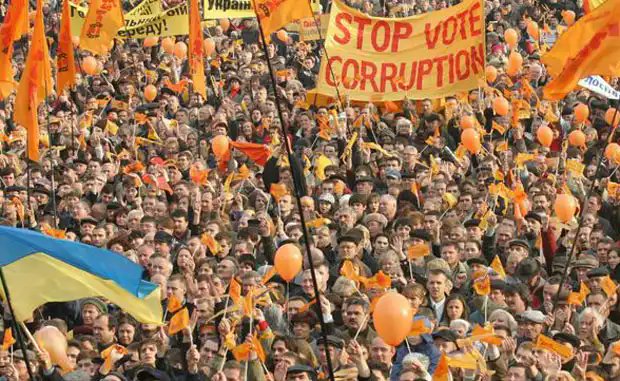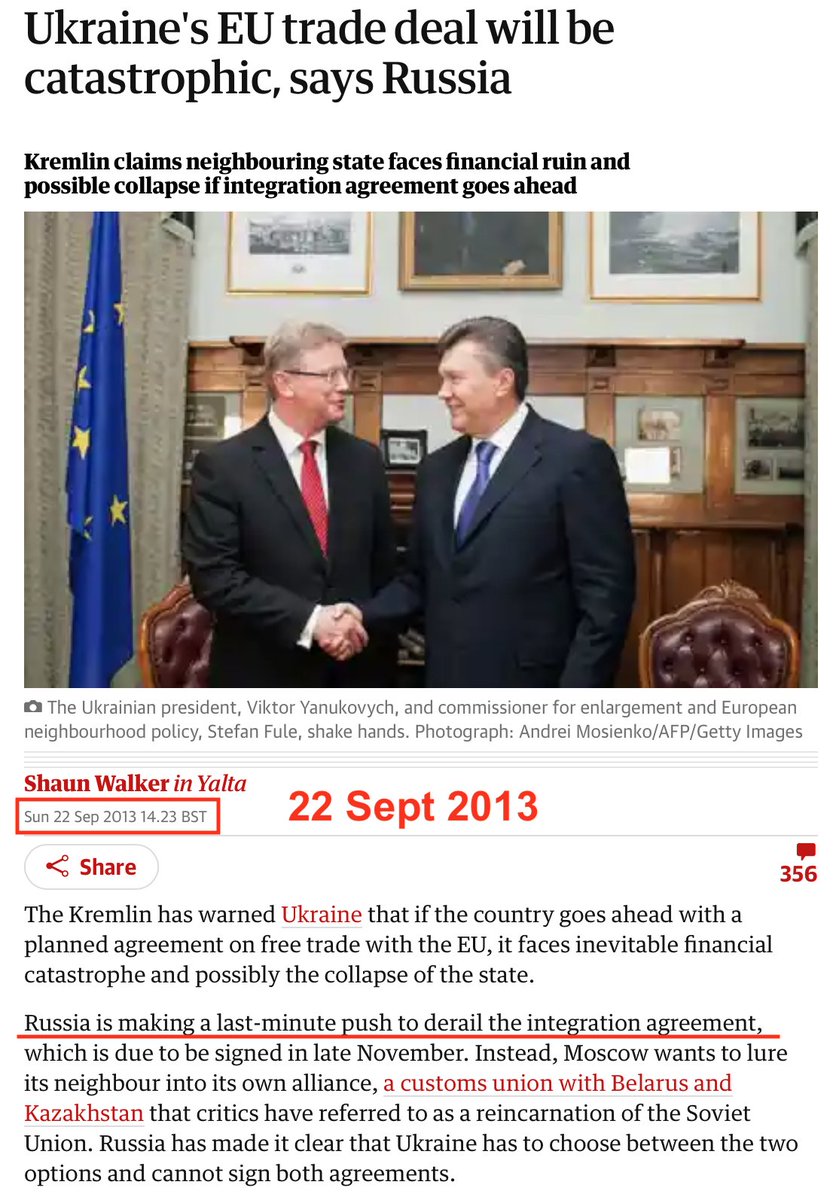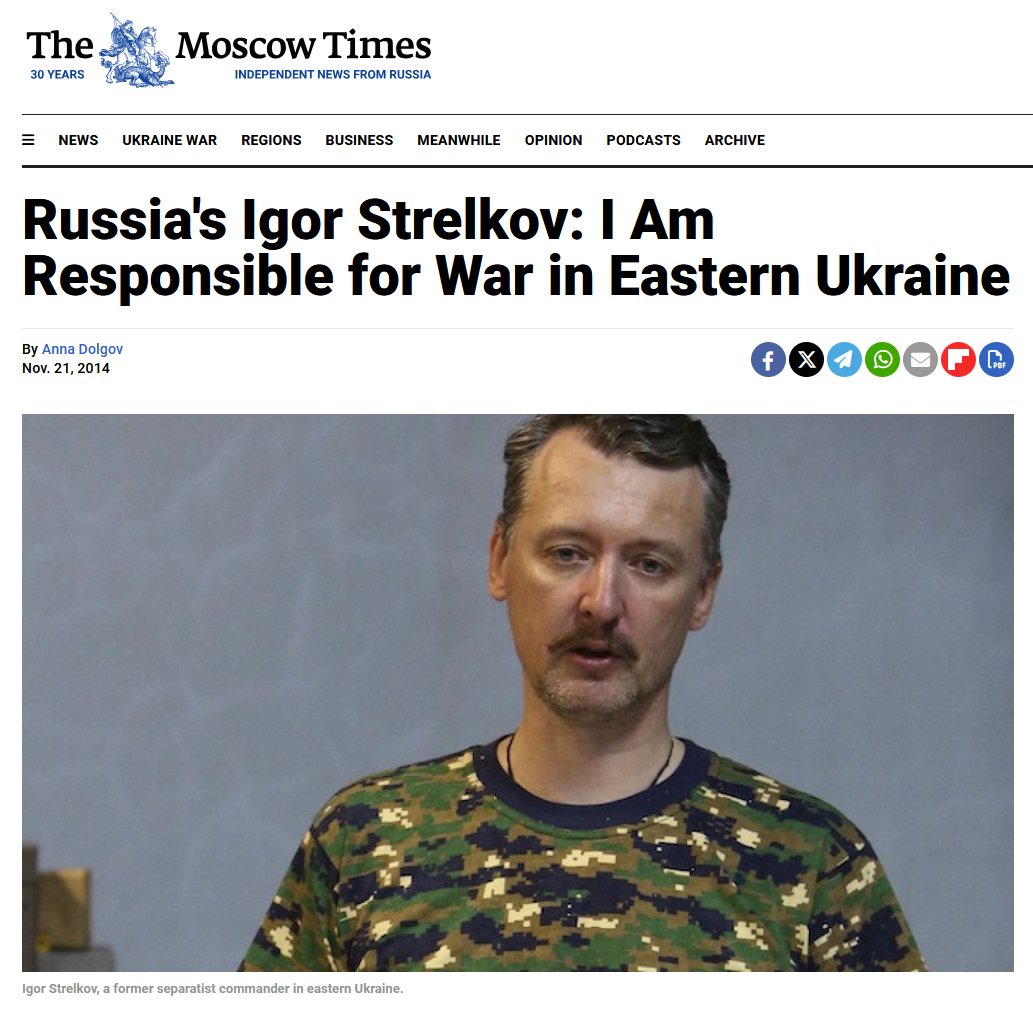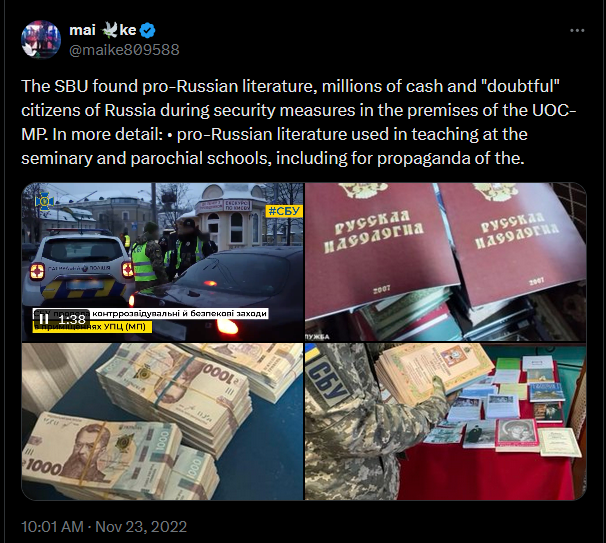In today’s Vatnik Soup, I’ll introduce a former Ukrainian politician and president, Viktor Yanukovych. He’s best known for selling his country to Russia, trying to turn it into an authoritarian state, and eventually fleeing to Moscow once his plan failed.
1/22
1/22

Now that Russia and the US are planning to replace president Zelenskyy with someone who’s more willing to sell the country to them (most probably Viktor Medvedchuk or one of his cronies), it’s a good time to remind people how Yanukovych and Putin almost took over Ukraine.
2/22

2/22


Yanukovych’s first attempt at power came in 2004, when he “won” the Ukrainian presidential election through massive fraud. The rigged vote sparked the Orange Revolution, a wave of protests that forced the election to be re-run. His opponent, pro-Western candidate…
3/22

3/22


…Viktor Yushchenko, ultimately won. Yushchenko was poisoned with dioxin, a highly toxic chemical. His face became disfigured almost overnight. The timing was suspicious, as he was leading in the polls, and many suspect that Putin was behind the attack.
4/22

4/22


After this, Yanukovych retreated from the spotlight for a while, but eventually made a political comeback. With support from Trump associates like Paul Manafort, he rebranded himself as a “moderate”, and, in 2010, narrowly won the presidency in a relatively fair election.
5/22



5/22




Initially, Yanukovych was promoting economic modernisation & greater economic ties with the EU, but throughout the years he started shifting more towards authoritarianism. Recently, we saw the same happen in Georgia with Bidzina Ivanishvili & his Georgian Dream party.
6/22



6/22




It is possible, that this strategy of luring in the voters with pro-EU and pro-Western sentiments and then turning towards Moscow originates from the Russian intelligence agencies, who are masters at deception and political maneuvering.
7/22
7/22

After some time, Yanukovych began reversing Ukraine’s pro-European course. He cracked down on opposition, imprisoned his main rival Yulia Tymoshenko, and handed key sectors of Ukraine’s economy to his inner circle, including his dentist son Oleksandr.
8/22


8/22



By 2013, Ukraine was on the verge of signing an Association Agreement with the EU. But at the last minute, under pressure from Moscow, Yanukovych abandoned the deal in favor of a 15 billion USD bailout from Putin, prioritizing his own power over Ukraine’s future.
9/22



9/22




This betrayal sparked mass protests known as Euromaidan or Revolution of Dignity. Ukrainians took to the streets, demanding European integration, democracy, and an end to corruption. Yanukovych responded with police crackdowns, kidnappings, and torture of protesters.
10/22
10/22

By early 2014, the situation escalated. On Yanukovych’s orders, riot police and snipers opened fire on unarmed protesters, killing over 100 people. Instead of crushing the uprising, this massacre only fueled nationwide outrage. Russian propaganda framed it as a “coup”…
11/22
11/22

… and blamed the CIA. As protests intensified, Yanukovych’s allies abandoned him. By 22 Feb 2014, he fled Kyiv in the dead of night, escaping first to eastern Ukraine, then to Russia. Parliament officially removed him from office, and new elections were called.
12/22


12/22



After his escape, Ukrainians discovered the scale of his corruption. His Mezhyhirya mansion was filled with expensive shit like golden toilets, private zoos, and a floating restaurant, and it quickly became a symbol of the obscene wealth he stole while in power.
13/22



13/22




Yanukovych’s downfall set off a chain reaction. With his puppet removed, Putin launched a military aggression against Ukraine, illegally annexing Crimea and fueling separatist uprisings in Donbas, Kharkiv and Odesa. Yanukovych, meanwhile, fully aligned himself with Moscow.
14/22



14/22




In 2014, a letter surfaced where Yanukovych begged Putin to send Russian troops to Ukraine due to it being on the “brink of a civil war”, giving the Kremlin a pretext for its invasion. This document became key evidence in his later treason trial.
15/22
15/22

Despite his irrelevance, Yanukovych remains a Kremlin tool. In 2022, reports emerged that Russia considered him as a potential puppet leader for Ukraine once Kyiv fell. But Putin’s plot failed, and these plans were quickly foiled.
16/22
16/22

In 2019, Yanukovych was sentenced in absentia to 13 years for treason. Today, he hides in Russia, still trying to rewrite history and justify his betrayal of Ukraine. His son is still running coal companies in Russian-occupied territories in Ukraine.
17/22


17/22



Today, Ukraine faces a similar threat. Trump is criticizing Zelenskyy for “not holding elections”, while his close associates are simultaneously pushing for the reinstatement of Medvedchuk’s media licenses. This would result in much more Russian propaganda in Ukraine.
18/22



18/22




Eventually, we will probably see accusations of Ukraine “banning the Orthodox church”, supposedly limiting the freedom of religion. But the only “church” that’s been banned is the Moscow Patriarchate (UOC-MP), actually an FSB front for espionage and propaganda.
19/22



19/22




When the elections are eventually held, Russia (and the US) will have their own candidate. This candidate will be heavily promoted and their opponent defamed. The Kremlin is willing to spend copious amounts of rubles to swing these elections.
20/22
20/22

Blueprint for the eventual elections:
1) US calls constantly for new elections;
2) Putin and Trump promote the same candidate and defame their opponent;
3) This candidate may seem “pro-Western”;
4) If elected, they will start selling out Ukraine to Russia and US.
21/22
1) US calls constantly for new elections;
2) Putin and Trump promote the same candidate and defame their opponent;
3) This candidate may seem “pro-Western”;
4) If elected, they will start selling out Ukraine to Russia and US.
21/22

To conclude, Yanukovych’s story is a warning – Kremlin (and Trump)-backed leaders will always prioritize Russian interests over their own country. Ukraine managed to resist this hostile takeover, but they (along with the rest of Europe) need to prepare for the next attempt.
22/22
22/22

The 2nd edition of “Vatnik Soup — The Ultimate Guide to Russian Disinformation” is officially out!
You can order your copy here:
kleart.eu/webshop/p/vatn…
You can order your copy here:
kleart.eu/webshop/p/vatn…
• • •
Missing some Tweet in this thread? You can try to
force a refresh

































